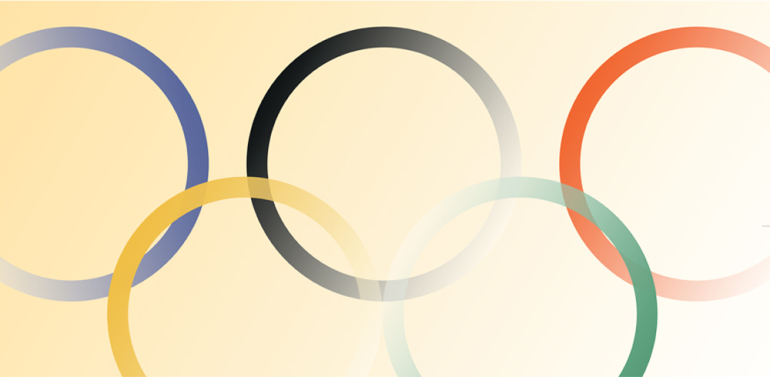
It has been 100 years since Polish athletes first took part in the Olympic Games. Over this time the history of medals and wins of white-and-red athletes has been continuously interweaving with SGH history.
Representatives of the SGH Warsaw School of Economics have been present in the Olympic Games almost since the Polish Olympic debut. At the Winter Olympics in 1928 in Sankt Moritz, it was Aleksander Kowalski, a hockey player, who together with his team took the fourth place in the next Olympic Games in Lake Placid four years later. The athlete was one of the victims of the Katyn massacre, he was murdered by Soviets in 1940.
The first Olympic champion who studied at SGH was Kazimierz Paździor. This lightweight boxer was the best at the Summer Olympics in Rome in 1960. Although Polish fighters coached by the legendary Feliks Stamm were among the best in the world, it was only Paździor who won the gold medal. After the Olympics he decided to end his boxing career and started studying economics at SGH. He obtained his Master’s degree in 1969.
Another SGH student and athlete in Rome was Edmund Piątkowski. This discus thrower who joined the Olympic competition as Europe’s champion, world record breaker, and Poland’s best athlete in the poll conducted by “Przegląd Sportowy” [“Sports Review”] magazine in 1959, ranked fifth in the Olympic Games. He competed three times in the world’s most important sports contest, but did not manage to win a medal. A fun fact: Piątkowski was also one of the pioneers of the Polish badminton. The game of badminton, in Polish also known as kometka, was what he practised during breaks in his training routine, and one of his sparring partners was a teenage Daniel Olbrychski.
A stormy fortune befell to another Polish track and field athletic star Ewa Kłobukowska. She appeared at SGH after she had prematurely ended her sports career. At that time accounting seemed more important to her than sport. Despite the short time she spent on world running tracks, she was by all means the most outstanding athlete ever to have studied at SGH. She was only 18 when she won a gold medal in a sprint relay and a bronze in the 100-meter dash at the Olympics in Tokyo. She later broke world records in those distances. An alleged controversy over her gender status which was based on unreliable and scandalous methods led to her disqualification. As it was proven later, the decision had been ungrounded.
However, none of Teresa Sukniewicz’s world records were ever questioned. During her time at SGH the hurdler achieved multiple record results in 100-meter and 200-meter races. She combined studying full time with her athletic practice. She won the poll organised by “Przegląd Sportowy” magazine and was chosen the best Polish athlete of 1970. An Achilles tendon rupture shortly before the Olympic Games in Munich in 1972 put an end to her Olympic career. The following failed treatment made her full recovery impossible and she could never return to her previous athletic shape.
Less than a decade after Sukniewicz’s successes SGH could boast another world record breaker in hurdle racing. At the end of the 70s Grażyna Rabsztyn was recognised as the best runner in the 100-meter hurdle race. Sadly, just like with Sukniewicz, her health condition stood in the way of winning Olympic medals – her injury played up both in Montreal in 1976 and in Moscow in 1980.
One of SGH strengths was also fencing. Although at that time, in the 60s, no university in the world could match the Department of Law at the University of Warsaw for fencing, some talent was also available at SGH. Michał Butkiewicz was one of the best Polish épéists in history. Together with his team he won a bronze medal in the Olympic Games in Mexico in 1968. Butkiewicz had a longer association with SGH. He obtained his PhD there and engaged in research work at our university.
The last to date Olympic medal winner at SGH was a foil fencer. Anna Rybicka competed in the Olympic Games two times. In Sydney in 2000 she won a silver medal, when Polish female fencers were defeated only by Italians. Rybicka did not participate in final fights, but brought an important contribution at the earlier stages of the contest.

SEBASTIAN MURASZEWSKI, journalist cooperating with student magazine "NMS Magie" and TVP Sport
